Question And Answer
Publications
Articles, publications, books, tools and multimedia features from the U.S. Institute of Peace provide the latest news, analysis, research findings, practitioner guides and reports, all related to the conflict zones and issues that are at the center of the Institute’s work to prevent and reduce violent conflict.
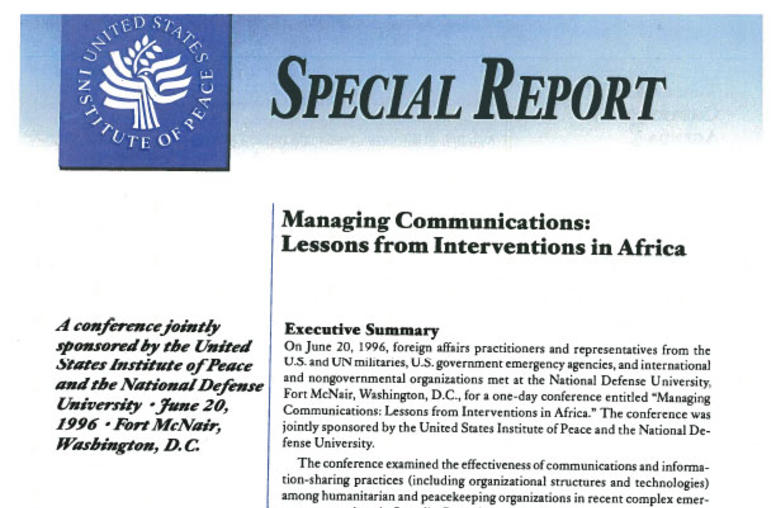
Managing Communications: Lessons from Interventions in Africa
"Managing Communications: Lessons from Interventions in Africa," the conference was jointly sponsored by the United States Institute of Peace and the National Defense University. It examined the effectiveness of communications and information-sharing practices (including organizational structures and technologies) among humanitarian and peacekeeping organizations in recent complex emergency operations in Somalia, Rwanda, and Liberia.
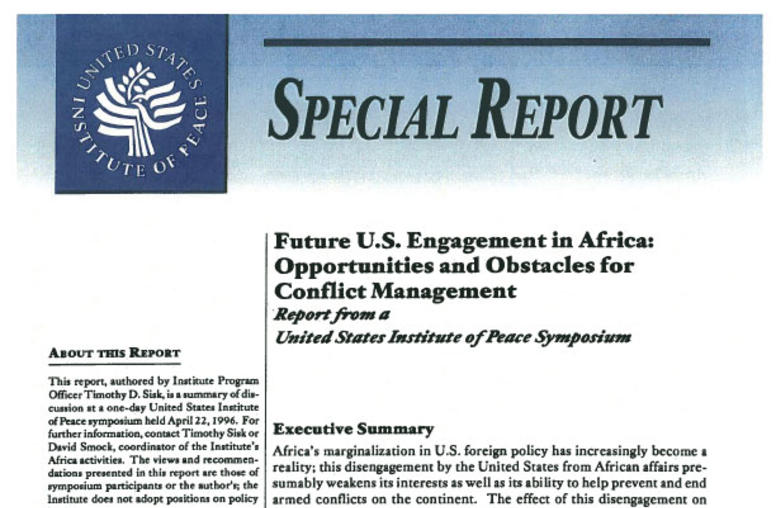
Future U.S. Engagement in Africa Opportunities and Obstacles for Conflict Management
Africa's marginalization in U.S. foreign policy has increasingly become a reality; this disengagement by the United States from African affairs presumably weakens its interests as well as its ability to help prevent and end armed conflicts on the continent.
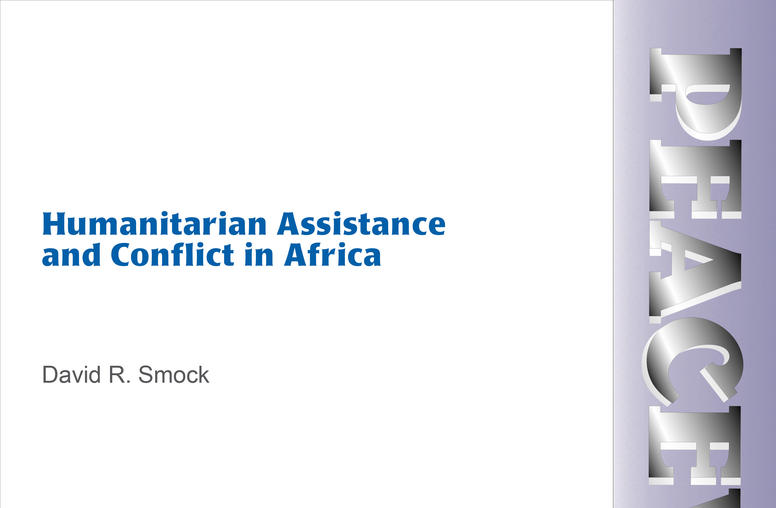
Humanitarian Assistance and Conflict in Africa
The good work of nongovernmental organizations (NGOs) in recent conflicts in such countries as Somalia, Haiti, and Bosnia is well known—providing food, shelter, medicine, and a host of other materials and services under extremely difficult conditions. But does humanitarian assistance in some cases actually exacerbate conflict?
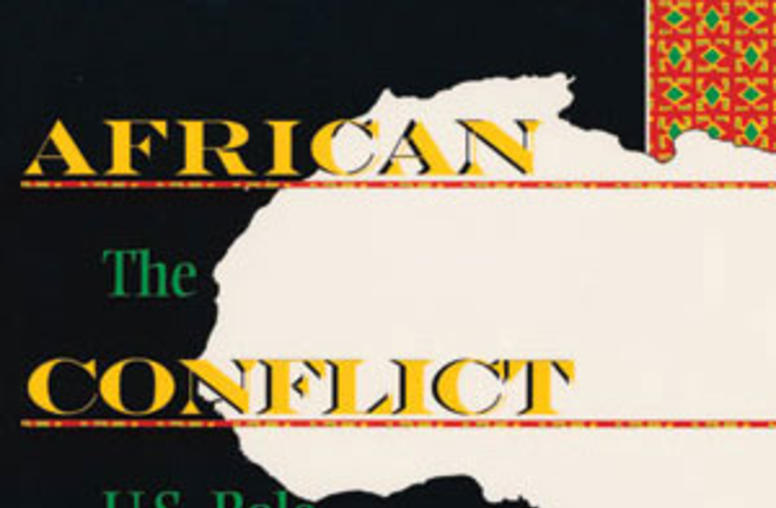
African Conflict Resolution
The U.S. Role in Peacemaking
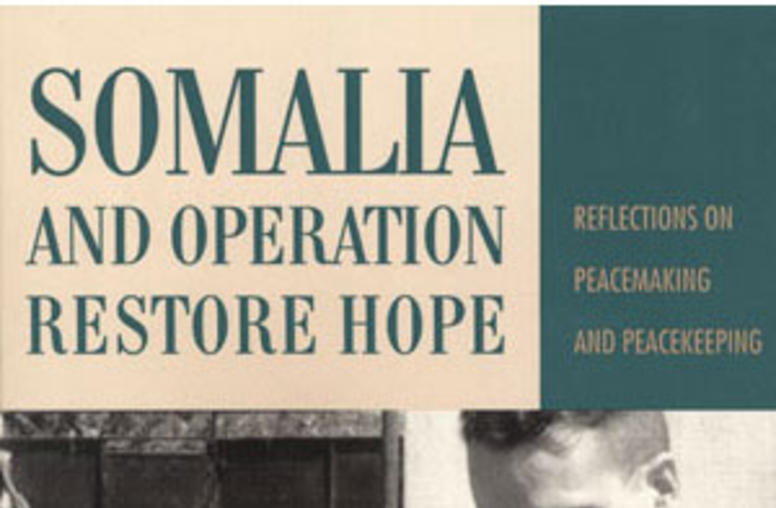
Somalia and Operation Restore Hope
“Somalia” has become a symbol for the unacceptable costs of humanitarian intervention, for the type of foreign involvement that should be avoided. But the authors of this timely book, themselves key participants in the U.S.-led operation there, argue that substantial good was done—the tide of famine was stayed, hundreds of thousands of lives saved, and steps toward political reconciliation begun.
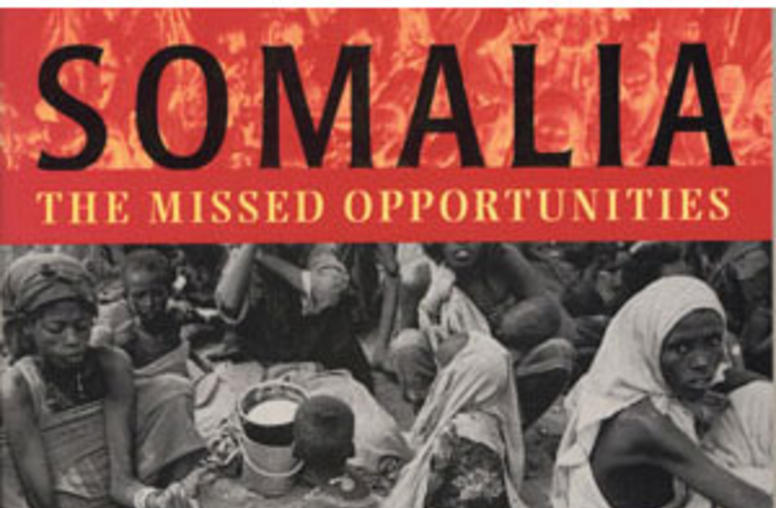
Somalia - The Missed Opportunities
By 1992, starvation, disease, and death had engulfed Somalia and its people. Plagued by the violence of civil war, Somalia had become a country with few resources and great despair—electricity, communications, transportation, health services, and food were all in short supply.
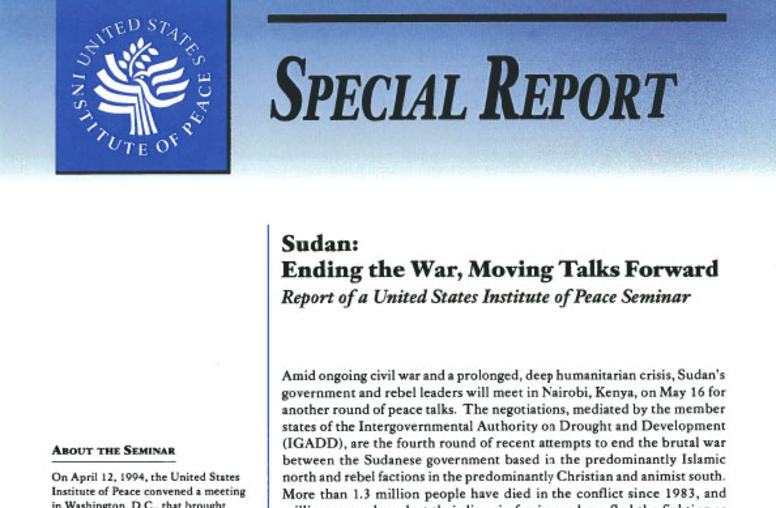
Sudan: Ending the War, Moving Talks Forward
Civil war has plagued Sudan off and on since decolonization began in 1955. Between 1955 and 1972, war raged between the predominantly Arab and Islamic north and the Christian and animist south over southern claims for autonomy and self-rule. The war ended with the Addis Ababa agreement, which granted local autonomy to the south. Currently there are deep disagreements in the north between the Islamist government and opposition parties (e.g., the Umma Party and the Democratic Unionist Party) o...
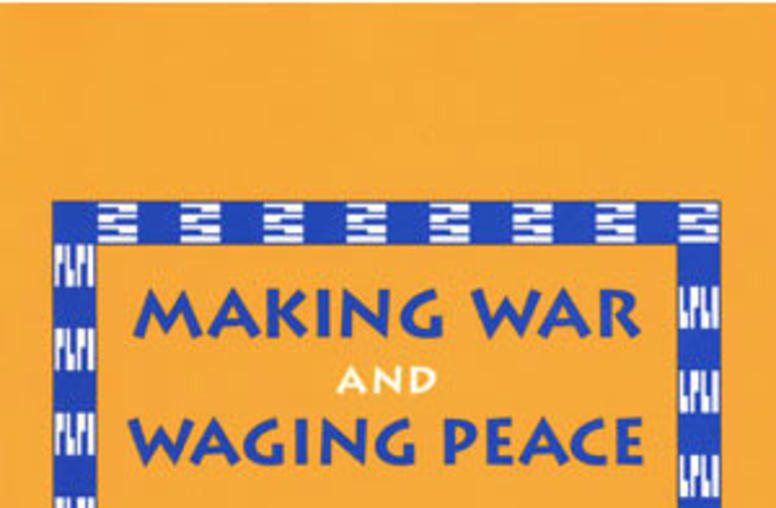
Making War and Waging Peace
This volume focuses on the role and effectiveness of external intervention in sub-Saharan Africa, primarily during the 1980’s. The authors include a range of Western and African scholars and policymakers with extensive experience in Africa.
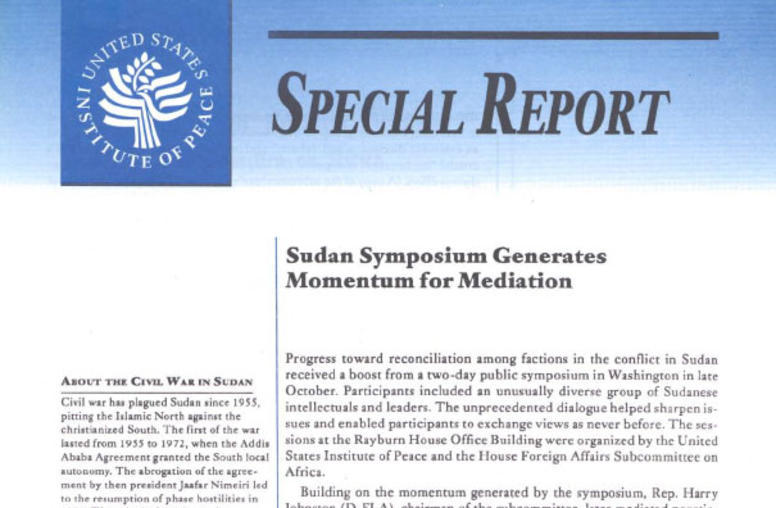
Sudan Symposium Generates Momentum for Mediation
Civil war has plagued Sudan since 1955, pitting the Islamic North against the Christianized South. The first of the war lasted from 1955 to 1972, when the Addis Ababa Agreement granted the South local autonomy. This report summarized the two-day public symposium, held in Washington at the Rayburn House Office Building, and organized by the United States Institute of Peace and the House Foreign Affairs Subcommittee on Africa. The symposium promoted reconciliation among factions in the conflic...
Special Prosecutor's Office: Ethiopia
Commission of Inquiry: The Special Prosecution Process by the Office of the Special Prosecutor Duration: 1993 – 2007(?) Charter: Proclamation No. 22/1992 Commissioners: more than 400 staff at peak Report: [Public report on first year of activities]